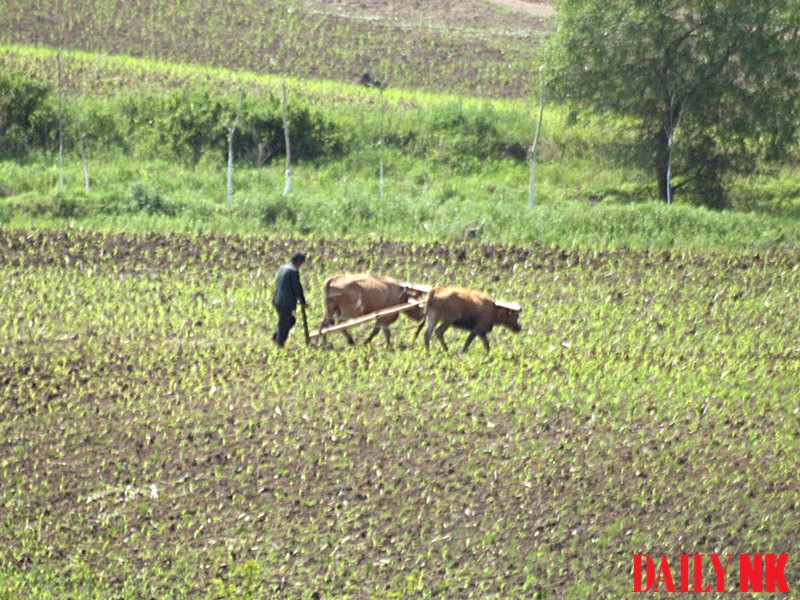
Some North Korean farmers in South Pyongan Province have more incentives to work following the implementation of the field management system (pojon tamdangjae). In recent months in particular, as the need to support military bases with fur and leather has decreased, many farmers are feeling more enthusiastic about their work while others complain of diminishing returns, report sources in South Pyongan Province.
“An individual field management system (FMS) has been implemented so people are putting their blood, sweat and tears into their farmwork,” said a South Pyongan Province-based source on October 4. “They are only required to give 30% of what they harvest to the state during the harvest season, and the rest (70%) can be kept, so their lives have improved.”
“They have been talking about implementing the FMS for some years now, but it was only just implemented last year,” the source said. “Farmers have to pay for fertilizer, but the amount of manure they can produce depends on how diligent they are, so they have become harder working than [factory] workers.”
An additional source in South Pyongan Province added that people who have recently turned to farming have been going to different places to collect human and animal waste to use for fertilizer.
Trough a statement by Kim Jong Un entitled, “Regarding the Establishment of a New Economic Management System” in 2012. The system affords individuals a slightly greater degree of autonomy in their farmwork by allowing families, instead of the previously existing farm units, to manage vegetable plots where only a set amount of crops produced goes to the state while the rest is given to the farmers themselves.
The system has gradually spread throughout the country, but there are still questions as to how well it has been implemented at the national level. The North Korean authorities have spread propaganda declaring how well the system has been working, but there is no firm evidence to suggest that the system is contributing to the country’s agricultural production.

Some observers say, however, claim that the system is leading to an increase in farmers’ motivation towards work. They point to the fact that the system allows individuals to take an unprecedented amount of crops for themselves, and that it has given farmers strong motivation to perform well by allowing a certain degree of autonomy in how they use their crop yields.
“The system is not being implemented across the board, but is just in the experimental stages in select areas,” another South Pyongan Province-based source told Daily NK.
“Farmers conduct their farming in family units and because the crop yields that are not given to the state are taken for themselves, farmers are working harder than they ever have. The FMS has more or less fallen apart everywhere except for in a couple of farms located in Sunchon, Ryongbong-ri and other places.”
He explained that farmers worked hard because they thought their production rates would be good, but after seeing that the state took almost of all their crops during the harvest season, “they have not felt the desire to work hard anymore.”
“People expected that agriculture production would improve due to the FMS, but I haven’t heard this actually happening except for a couple of places,” he said.
“The farmers are realizing that the amount of harvest they actually receive [can take home] isn’t enough for the entire year.”




















